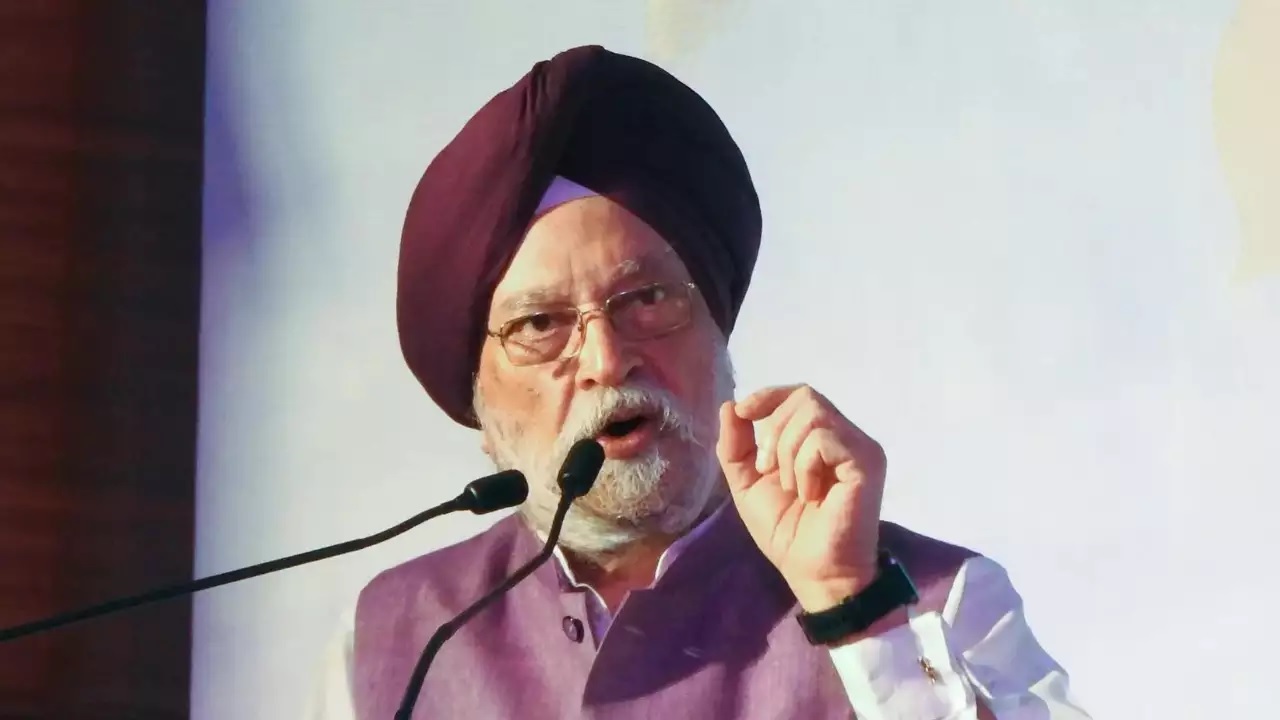Source : PTI | New Delhi: To ensure a smooth transition without compromising energy security, India is strategically investing in diverse energy sources, including scaling up biofuel production, increasing its gas share from 6% to 15%, and targeting 5 million metric tonnes of hydrogen production by 2030, said the Union Minister of Petroleum and Natural GasHardeep Singh Puri on Tuesday.
However, he noted that while renewables are set to become the dominant energy resources, oil and gas will still play a vital role.
Speaking at the third edition of the India Energy Week, he advocated for a balanced approach that combines both traditional and renewable energy sources to build a sustainable energy system.
“For too long, we have viewed the energy transition as a linear journey — from fossil fuels to renewables, from past to future, from problem to solution,” he said.
“It is not an outright replacement, but more shifting the primacy of one energy source over another,” he added.
According to him, three key forces will play a pivotal role in shaping the energy landscape in the coming years– new drivers of demand such as artificial intelligence and clean cooking, balancing immediate challenges with a long-term vision, and building resilient supply chains for an orderly transition.
He highlighted that India offers a compelling and diversified investment landscape, with 7.6 billion tonnes of discovered upstream resources, 500 million tonnes of biofuel feedstock, and a growing energy demand.
Need for energy justice
The Minister pointed out the need for cohesive and inclusive energy policies for global progress. Without these, the gap between developed and developing economies could widen.
He stressed that the transition to a sustainable energy future must ensure equitable access to energy for all, ensuring that no nation is left behind. “Energy justice must shape the new energy order. Energy justice must remain at the core of the imminent transformation,” he said.
“The government and industries must act decisively to prevent disorderly shifts,” he added.
Puri stated that as the world accelerates, policies must evolve accordingly. Governments need to design frameworks that incentivize bold innovation, mitigate risks associated with essential investments, and ensure long-term commitments that extend beyond short-term goals.
“Success will be measured not by how fast the wealthiest decarbonise, but how inclusively the world transforms,” the Minister noted.
Citing the International Energy Agency’s (IEA) projection that global energy investment will exceed USD 3 trillion in 2024, with USD 2 trillion allocated to clean energy technologies, he pointed to this as a clear indication of the accelerating shift toward cleaner energy sources.
Role of artificial intelligence
Puri noted that as the demand for data centers is expected to grow by 18-20% annually by 2030, artificial intelligence (AI) is becoming one of the largest energy consumers globally.
With this, India’s AI-driven digital economy, projected to reach USD 400 billion by 2030, brings both challenges and opportunities.
However, relying solely on renewables will not suffice, as the AI-driven demand will require “round-the-clock reliability.” As a result, natural gas, coal with carbon abatement, and next-generation nuclear power will remain crucial, he added.
At the same time, AI itself will enhance fossil fuel efficiency, influencing energy security, while AI-driven grids can predict and manage power demand more effectively, Puri noted.











